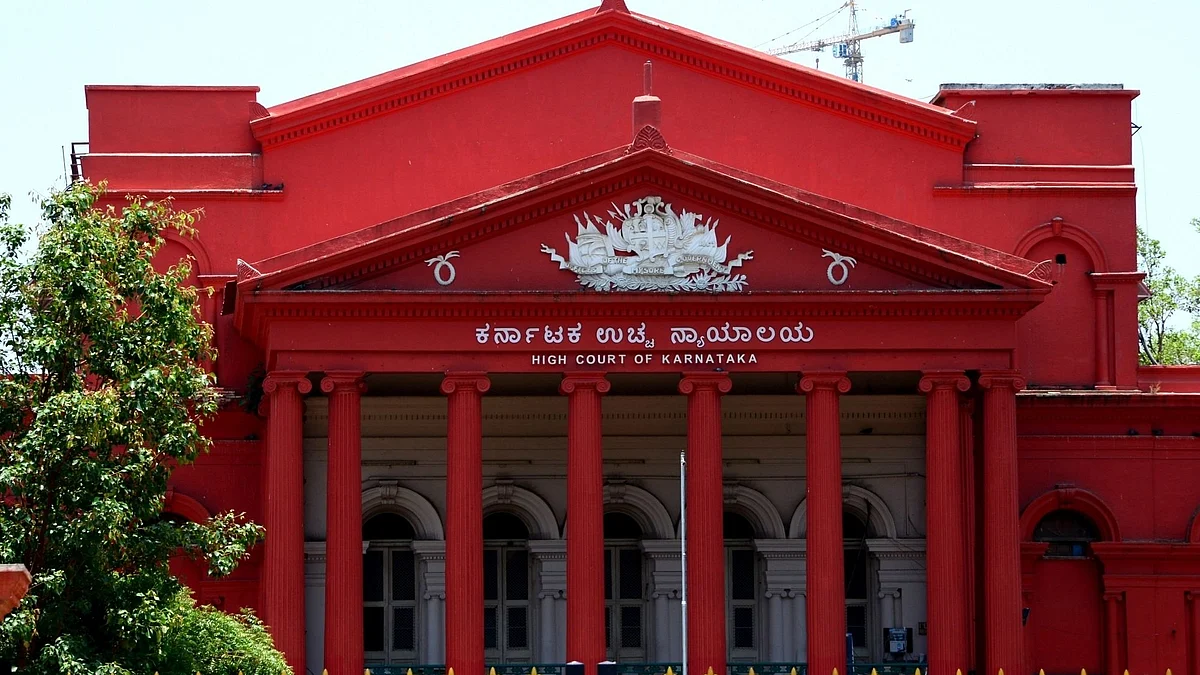K'taka HC strikes down gendered clause against married daughters of ex-servicemen
Justice M. Nagaprasanna struck down the words "till married" in the clause terming it as unconstitutional and against the provisions of Article 14 and 15 of the Constitution

Striking down a clause in the guidelines of the Department of Sainik Welfare and Resettlement which made married daughters of ex-servicemen below the age of 25 ineligible for dependant ID cards, the High Court of Karnataka said that the guidelines depicted gender bias.
Guideline 5(c) for issuance of the dependant ID card made daughters who are married ineligible. But for sons of service personnel it is at the age of attaining 25 years.
Justice M. Nagaprasanna in a judgment dated January 2, 2023 struck down the words "till married" in the clause terming it as unconstitutional and against the provisions of Article 14 and 15 of the Constitution.
"The very object with which the welfare schemes are created for the benefit of the kith and kin of a deceased ex-servicemen is taken away, because the petitioner is the daughter and the daughter is married. If the ex-servicemen had sons, marriage would not have made any difference. It is for this reason, the guideline falls foul of the tenets of Article 14 of the Constitution of India. The guideline is a depiction of gender stereotypes which were existent decades ago, and if permitted to remain would be an anachronistic obstacle in the march towards women's equality," the Court said.
The petition was filed by Priyanka R Patil from Mysuru. Her father Subedar Ramesh Khandappa Police Patil died while clearing land mines in Punjab in 2001 and was declared 'killed in action.' Priyanka had applied for a post of assistant professor under the ex-serviceman quota of 10 per cent. However, the Department refused to give her an ID card following which she approached the High Court.
Ordering the Department to provide Priyanka the ID card within two weeks, the High Court said, "The guidelines will fly on the face of the tenets of Articles 14, 15 and 16 of the Constitution of India. If any Rule/Policy/Guideline, which would be in violation of the Rule of equality, such Rule/Policy/Guideline cannot but be obliterated, as being unconstitutional.
The issue in the list is not the Rule, it is a Policy or a Guideline for grant of I-card to the dependants of the ex-servicemen and is therefore necessarily to be annihilated." Further, the High Court suggested that gender neutral terms should be used and the State and Central governments should consider changing the nomenclature of 'ex servicemen' to 'ex-service persons.' "The word 'men' in the title, a part of word ex-servicemen, would seek to demonstrate a misogynous posture of an age old masculine culture.
Therefore, the title wherever reads as ex-servicemen in the annals of policy making of the Government, be it the Union or the State concerned, should be made “Gender neutral”. There has to be a change in the mindset of the rule making authority or the policy makers, it is only then there could be recognition of commitment of the values of the Constitution, as equality should not remain a mere idle incantation, but has to be a vibrant living reality. It must be remembered that extension of women's right is the basic principle of all social progress," the Court said.
"It is for the Union Government or the State Government to address this imperative need of change of nomenclature wherever it depicts to be 'ex-servicemen' to that of 'ex-service personnel' which would be in tune with ever evolving, dynamic tenets, of Article 14 of the Constitution of India," the judgment concluded.
Follow us on: Facebook, Twitter, Google News, Instagram
Join our official telegram channel (@nationalherald) and stay updated with the latest headlines